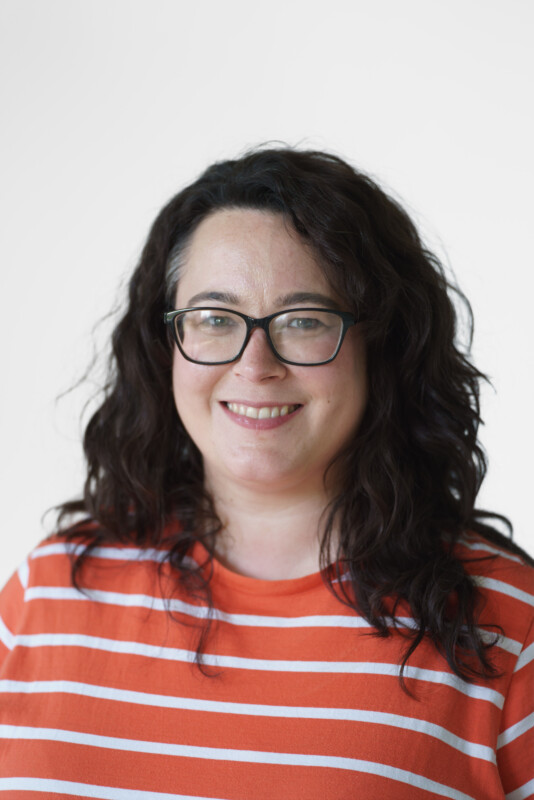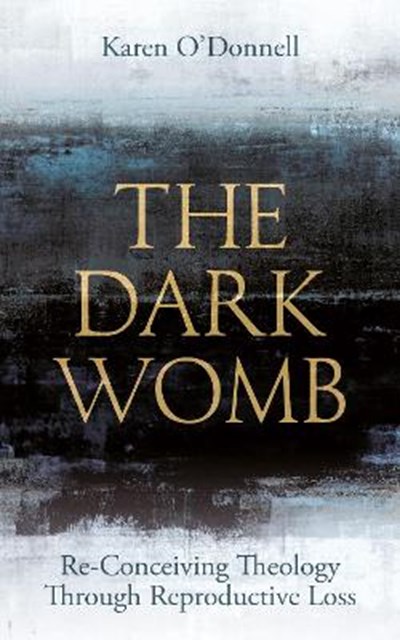
Dr Karen O’Donnell introduces her new book, The Dark Womb: Re-Conceiving Theology through Reproductive Loss, is due to be published 28 February 2022 by SCM Press. Order it here
This new book is the first academic theological investigation into the impact the experience of reproductive loss has on theology.
I wrote it drawing on my own experiences of reproductive loss and the book is quite personal and vulnerable as I talk about these experiences and the impact they had on my faith. When I experienced these losses in my 20s, I was further distressed to discover that there was no theological thinking around these experiences. They had been so devastating and wrenching for me, but theologically they just seemed to be really unimportant. I also felt that the theological responses people gave me in church, whilst well-intentioned, were actually quite naïve, ill-considered, and often toxic. I wrote this book recognising the need for some good theology around this experience.
The book explores what our theology might look like if we started our theological thinking from the body of the person who has miscarried. In the book, I tackle a number of different theological doctrines – providence, prayer, hope, and the body – and examine how we might think of these things if we start from the experience of the person who has miscarried. For example, what does a theology of providence (the idea that everything that happens to us is part of God’s plan) look like when we begin from the perspective of a miscarriage? This raises such fascinating questions like is God really in control of every aspect of our lives, does God create human life, and how else might we perceive our relationship with God away from metaphors of King and Lord? Whilst I approach these (and other) questions from the perspective of pregnancy loss, I hope this example of constructive theological work might be interesting even to people who are not interested in pregnancy loss in particular.
There is very little theological work on reproductive loss! One notable example is Martin Luther’s “Comfort for Women Who Have Had a Miscarriage” which is pretty much the only historical theological text I found. And it’s not very comforting at all! It is mainly about whether or not miscarried babies go to heaven. Which must have been a concern in Luther’s time but does not tend to be top of the list of worries in the 21st century!
There are a number of reasons for this theological silence. Part of it is to do with historical norms. There are few references to miscarriages in history. Where it is recorded, it tends to be quite matter of fact and not too distressing. Perhaps women in history were more accustomed to infant death than we are today? Of course, pregnancy, birth, and therefore pregnancy loss occurred in women’s worlds. Given that theology was predominantly a male-dominated discourse up until the 20th century, it is not surprising that theology has little to say about this experience.
It is also significant that the bible has little to say about miscarriage. There are only a handful of references to miscarriage in the bible. Where it does occur, miscarriage seems to be a punishment or curse from God. Not an enticing subject for a sermon! And of course, few people would interpret miscarriage in that way these days, so the biblical text poses more of a hindrance to theological understanding than a help.
We need theological work on the experience of reproductive loss partly because it is so common. Something like 20% of confirmed pregnancies will end in a miscarriage. The true number is likely much higher. This means that most of us will know someone who has had a miscarriage. They are likely to be in our friendship groups and our communities. This work is also needed because it raises theological questions that deserve to be taken seriously. When we do not take these seriously, we are implying that the experience of the person who miscarries does not matter. And that can be damaging in itself. Finally, for some people, the experience of reproductive loss is devastating, traumatic, and very difficult to come to terms with. It is important that we have good theological reflection on these experiences so that both those who do miscarry, and those who care for them, are able to find pathways through this experience that might eventually allow them to flourish.
Unsurprisingly, given my work in Christian Spirituality, I firmly believe that theology and spirituality are deeply entwined. What we believe impacts on how we pray and vice versa. Therefore, whilst this is predominantly a theology book, it has significant practical implications. Having explored a rich and fresh theology within the chapters, I then draw this into a practical outworking in the final chapter. This chapter is a collection of prayers, spiritual practices, and liturgical resources that I have developed based on the theology within the book. I hope these might resource the church – both individually and corporately – in dealing with the experience of reproductive loss more openly. I hope, as well, that the prayers and practices I have outlined might help to give words to these experiences that can so often feel beyond language.
I hope this book might be of interest and value to people who have experienced reproductive loss and to those who care for them pastorally. But I also hope that this example of constructive theology might be interesting to people who are seeking out fresh and enriching ways to understand theology and their faith. Whilst some of the perspectives I outline might be challenging because they are so different to our traditional ways of thinking, I hope the book might help people to reflect on what is essential to their faith. After all, theology is human-made, not God-given. And as such it should always be open to revising in the light of new knowledge and understanding.
Dr Karen O’Donnell leads the Contemporary Spirituality learning programmes and is Programme Leader for the MA in Christian Spirituality.
An excerpt from the first chapter of The Dark Womb appears in the 25 February 2022 issue of the Church Times.

Karen thanks for writing this wonderful book. My lovely mum had a still birth with my twin brother Michael in the 1960
She blamed herself for his death and it’s had deep impact on me as I blame myself that I survived so this book you have written is very important on a human and spiritual level
As Trauma theology is very misunderstood with in the church so glad you have used your experience
I can’t wait to read this wonderful book
Thanks 🙏